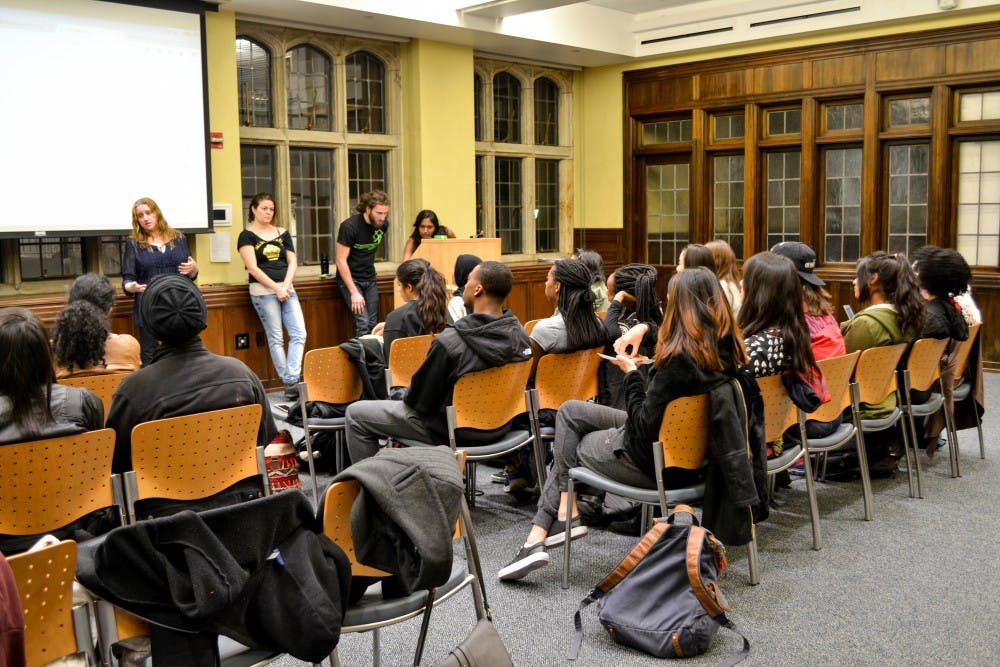“Stop Snitching on Yourself,” read the title of a PowerPoint presentation for the activist workshop held in the ARCH building on Monday.
Approximately 25 undergraduate students and one University staff member attended the event, called “Know Your Rights: An Activist Workshop.” Penn Association for Gender Equity, the United Minorities Council and Penn for Immigrant Rights hosted members of the Up Against the Law Legal Collective, a Philadelphia-based group of lawyers and other advocates who provide training and support to activists in addition to legal observation during protests.
In light of rising levels of activism, student group leaders said they felt that Penn students must understand their rights as protestors, activists and citizens.
“We want to equip Penn students with the necessary tools to protect themselves and continue to speak and act out in support of the issues they believe are worth fighting for,” College junior and UMC Chair Krisna Maddy said.
College junior and PAGE chair Meghana Nallajerla-Yellapragada explained that she helped organize the workshop after participating in a sit-in at the Philadelphia airport following the recent immigration ban. She described the fear she and other Penn student protesters felt when police closed doors to the building, cutting them off from others protesting outside.
“It was a threatening tactic,” she said. “It made us ask ourselves, what does activism mean? What does it mean to be an activist? The Collective is here to explain the system ... they are here to explain the law essentially.”
The three Legal Collective representatives began the training session by asking for two volunteers, one to play a police officer and one to play a pedestrian stopped on the street. After the role-play ended, they said that individuals stopped by a police officer are only legally obligated to state their names, and a piece of identification is only required for individuals on probation.
The overarching message of the presentation was that silence is the best course of action. The presentation included step-by-step instructions for police interaction.
Legal Collective representatives said that, beyond a surface-level frisk, you have the right to say, “I do not consent to this search.”
You then ask, “Am I being arrested?” If yes, be quiet. If not, still stay silent, but walk away.
Should you be arrested, they said, you must say, “I am going to remain silent.”
“There is a reason [the police] tell you: ‘Anything you say can and will be used against you,’” a presenter said. “Nothing you say will be used to help you.”
“Police are allowed to lie, and they will lie to get you to talk,” another Legal Collective presenter added.
Once in jail, individuals should not talk to cellmates about anything regarding the arrest. Presenters told students that the cells are often videotaped, so anything said can be used as an admission of guilt. They emphasized that, when questioned, any arrested person should remain silent because they have the right to a lawyer.
The presentation concluded with a message of support.
“You can’t beat the ride, but you can beat the rap,” a Legal Collective presenter said. “Don’t be afraid of activism. You just have to be aware of the network of care available to you.”









